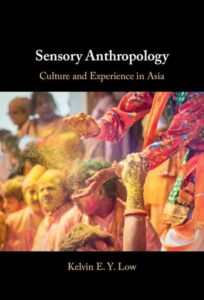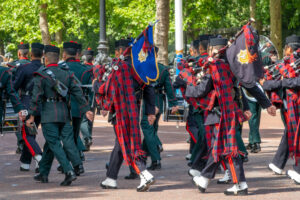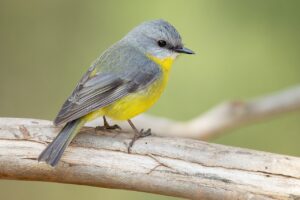KELVIN E.Y. LOW
Associate Professor Kelvin E.Y. Low (NUS Sociology and Anthropology) recently received the FASS Award for Excellent Researcher (AER), which is presented to researchers based on the overall impact and strength of their research. The successful researcher would have “achieved consistent research excellence, produced a piece of research of great impact, and be recognised by the research community as having achieved a significant breakthrough.” A/P Low’s primary research interests are in Senses and Society, Migration and Transnationalism, Social Memory, Historiography, Heritage, and Food and Foodways. He is the current Head of the NUS Department of Sociology and Anthropology and serves on the editorial advisory boards of The Senses and Society and Perspectives on Sensory History. A/P Low is also Academic Editor of the Social Sciences in Asia book series published by Brill, and sits on the International Scientific Advisory Board of the German Institute of Development and Sustainability (IDOS). He is additionally an elected editorial board member of Sociology, the journal of the British Sociological Association, as well as Cultural Sociology, and has also been appointed to the Core Academic Panel of the National Museum of Singapore (2022-2025). A/P Low has published numerous articles in top academic journals, such as American Behavioral Scientist, The Sociological Review, Pacific Affairs, and Ethnography. He has authored three books, Sensory Anthropology: Culture and Experience in Asia (Cambridge University Press, 2023), Remembering the Samsui Women (University of British Columbia Press & NUS Press, 2014 & 2015), and Scents and Scent-sibilities: Smell and Everyday Life Experiences, and co-edited and contributed to Coastal Urbanities: Mobilities, Meanings, Manouevrings (Brill, 2022), Senses in Cities: Experiences in Urban Settings (Routledge, 2017), and Everyday Life in Asia: Social Perspectives on the Senses (Routledge, 2010). 
Sensory Anthropology (Cambridge UP, 2023) makes the case that studying the senses seriously can uncover insights about sociocultural conditions and practices. The basic premise of this approach is that ways of sensing—that is, the categories of senses (e.g., sight, smell, touch), what constitutes pleasant or unpleasant senses, and so on—are laden with socio-cultural values. In this way, every act of sense perception carries with it some socio-cultural value connotation. As ways of sensing and making sense of perceptions can change over time, A/P Low investigates historical material, re-interpreting existing texts on Asia with a renewed emphasis on their sensory components. By taking the senses seriously, the book analyses Asia in a new light, potentially uncovering new pathways for knowledge generation. |
|
We congratulated A/P Low and spoke to him about his research work. 1. How does studying the social and cultural meanings of the senses benefit us? The senses, as vehicles of knowledge carry meaning, interpretation, and social symbolism in different cultures and societies. How they are deployed and talked about across the whole array of everyday social domains shore up multiple possibilities as well as constraints in terms of how the senses organise human-nonhuman experience. Through sensory relations and experiences, we can better comprehend how social actors maintain social order vis-à-vis the norms, values and significance expressed through the senses. |
|
2. Why did you decide to work on a book-length study of the Gurkha diaspora?  The Nepali Gurkhas are renowned as brave warriors recruited by the British since 1815 and have travelled and served all over the world as soldiers, in the police force, or as peacekeeping security forces. Their migrant lifeworlds and aspirations as a Nepali community, however, have seldom been addressed in the wider scholarly literature, with some muted exceptions. Therefore, I wanted to study Gurkhas and their families as a diasporic community, their historical and contemporary global dispersions, and to engage with their varied experiences of belonging and not-belonging in the different countries that they have worked or lived in. Specifically, my project studies Gurkha families working and residing in the UK, Singapore, Hong Kong, and Nepal. |
|
3. You have done a lot more research on smell (and to a lesser extent, its most closely related sense, taste) in comparison to the other senses. Why did studying smell spark your interest? Do you envision carrying out any projects that deal with the senses of hearing, sight, and/or touch? While the subject matter of my first monograph centered upon smell, I have since looked into different sensory pairings, intersensorialities, as well as sensory scholarship and research vis-à-vis claywork, and human-animal relations in urbanity. My sensory research and writing over the years have also engaged deeply with issues related to commensality and heritage, mobilities, and citizenship, among others. In the near future, I hope to connect my approaches to sensory studies with the sociology of music, to unveil how musicians and their sensorialities conjoin with technique, performativity, and embodied musicianship. |
|
4. What are some of the gastronomical encounters you have experienced in Asia that have inspired your research?  What political leaders eat when they travel on diplomatic visits is intriguing and a useful point of departure to comprehend diplomacy through gastronomic inquiry and analysis. The cuisines and dishes that are being served by the host country usually allude to tastes of national identity and heritage that thereby present oblique ways for others to connect to local foodways; what some would term as a kind of soft power in statecraft and political behaviour. |
|
5. Which of your publications are you most proud of and why? I think my publications on the senses and social life reflect upon how far this domain of social scientific inquiry has developed over time. When I first embarked on sensory research about two decades ago, some were sceptical as to the value or academic worth of the subject matter. Having persisted with my research interests especially in this field among others, has thus been a rewarding journey and a most gratifying one in my development as an academic. |
|
6. Which social theorists have been most influential for you?  Scholars of social constructionism such as Peter Berger, Thomas Luckmann, and Alfred Schütz (phenomenology), and lately, Actor-Network theorists including Bruno Latour and John Law have influenced my approach to research and writing. I also enjoy following the works of sensory scholars such as David Howes, Constance Classen, and Mark M. Smith, among others, who articulate the social life of the senses in intriguing and nuanced ways. |
|
7. What has been your most memorable teaching experience at NUS? I find it a privilege that I am able to synthesise teaching with research, and I enjoy teaching such courses as Senses and Society, or Sociology of Food (soon to be taught as Food and Foodways through anthropological approaches). It is most gratifying when students share with me that they are able to appreciate how such topics which are at first seemingly quotidian and banal, can be approached through social scientific analyses. It is when they realise how the sensory and the gastronomic can be interrogated in vastly different ways and through cross-cultural comparisons, that I know some inroads have been made in their sociological and anthropological education! |
|
8. Lastly, what research are you interested in pursuing on in the future?  I have just begun research on a new book project tentatively titled ‘Sonic Encounters in the Everyday’ where I address how different sonic behaviours in urban life and how social actors encounter them are sensory contact zones that reflect upon transgression and conflict. I am also keen on studying human-animal relations pertaining to songbird enthusiasts and the wider community, as well as ethnographic approaches to veterinary experiences. |
|
Thank you very much for taking the time to answer these questions, A/P Low, and congratulations again on being awarded Excellent Researcher! |


